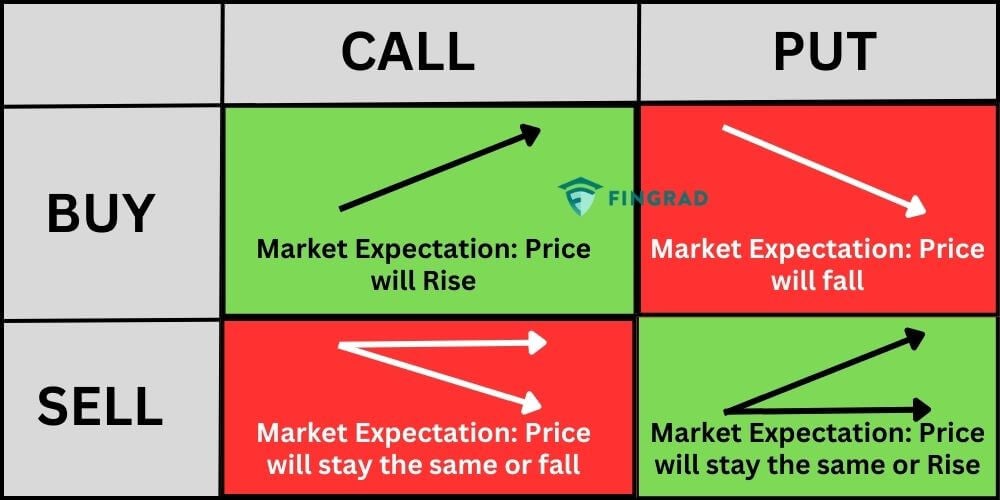The allure of potential high returns and the thrill of the trade—these are the siren songs of option trading that entice investors, both seasoned and novice. But like any investment, option trading comes with its own set of intricacies and risks. This article delves into the world of option trading, unveiling its complexities and exploring whether the potential rewards outweigh the inherent dangers.

Image: tradebrains.in
Option trading, in essence, is a contract that gives the holder the right (but not the obligation) to buy or sell an underlying asset, such as a stock or index, at a predetermined price on or before a specific date. Sounds complex? It certainly can be, even for seasoned traders. But understanding the concept of options—their intrinsic value, time decay, and the leverage they offer—is crucial to navigating this multifaceted investment landscape.
Delving into the Enticing World of Options
Before we dive into the complexities of “Is option trading worth it?”, let’s demystify the basics. Options, in essence, are like tickets, tickets to a potential future where you can either buy or sell an asset. There are two main types of options:
-
Calls: These grant you the right to buy an underlying asset at a predetermined price (the strike price) on or before a certain date (the expiration date). Think of it as a lease on a property – you pay a premium (option price) for the right to buy the property at a specific cost within a specific time frame.
-
Puts: These, on the other hand, grant you the right to sell an underlying asset at a predetermined price on or before the expiration date. This is like selling a call on your property: you receive a premium for the right to sell the property at a specific cost within a specific timeframe.
The beauty of options lies in their leverage. A small investment can potentially yield significant returns if the price of the underlying asset moves in your favor. Consider this: you buy a call option on a stock that you predict will increase in value. The stock does indeed rise, generating a profit far exceeding the initial investment. This is the potential for high returns – the gold at the end of the rainbow. But, naturally, there’s a storm cloud lurking behind this golden shimmer: risk.
The Double-Edged Sword of Risk
The leverage that options provide is a double-edged sword. It amplifies potential profit but also elevates the risk of loss. Unlike buying stocks where the maximum loss is limited to the purchase price, options can result in what’s known as total loss. This means you can potentially lose the entire premium paid for the option if the price of the underlying asset moves against you.
The risk of options trading is further magnified by the time factor. Options are time-sensitive – they have an expiration date. As time passes, the option’s value gradually erodes, a phenomenon known as time decay. If the price of the underlying asset doesn’t move in your favor before the expiration date, you can lose your entire premium.
Is Option Trading Right for You?
This is where the big question arises: is option trading worth it? The answer is not a simple yes or no. It depends entirely on your individual risk tolerance and investment goals. If you’re a risk-averse investor looking for steady returns, option trading is probably not for you. However, if you’re a more adventurous investor willing to accept a higher risk for the potential of greater returns, then option trading might be an intriguing prospect.

Image: purepowerpicks.com
Navigating the Option Market: Key Considerations
Before diving into the option market, it’s essential to understand the intricacies and risks involved. This is not a game to be played casually.
- Thorough Research: It’s crucial to conduct in-depth market research and analyze the underlying assets you’re interested in.
- Risk Management: Implement sound risk management strategies including setting stop-loss orders to limit potential losses.
- Education is Key: Gain a solid understanding of option pricing, strategies, and risk management. Opt for reputable educational resources and consult with financial advisors.
- Discipline and Emotional Control: Emotional trading in the option market can lead to devastating losses.
- Start Small: Don’t go all in. Start with a small amount of capital and gradually increase your investment as you gain experience and confidence.
The Power of Expert Guidance
The world of option trading can be a complex and intimidating one. But navigating this intricate landscape doesn’t have to be a solo mission. Seeking guidance from experienced traders and financial advisors can be invaluable. They can provide insights into strategies, risk management, and offer personalized guidance based on your individual needs and investment goals.
Is Option Trading Worth It
Conclusion
Option trading can be a powerful tool for experienced and sophisticated investors seeking to leverage their capital and potentially generate substantial returns. However, it’s important to remember that the potential for high rewards comes with an equally high level of risk. It’s not a venture to be taken lightly.
Before embarking on this trading journey, ensure you’ve gained a comprehensive understanding of the complexities, risks, and strategies involved. Remember, knowledge is your most powerful weapon in maximizing potential profits and minimizing potential losses.
Have you dabbled in option trading? Share your experiences and insights in the comments below. Let’s continue the conversation and learn from one another.






